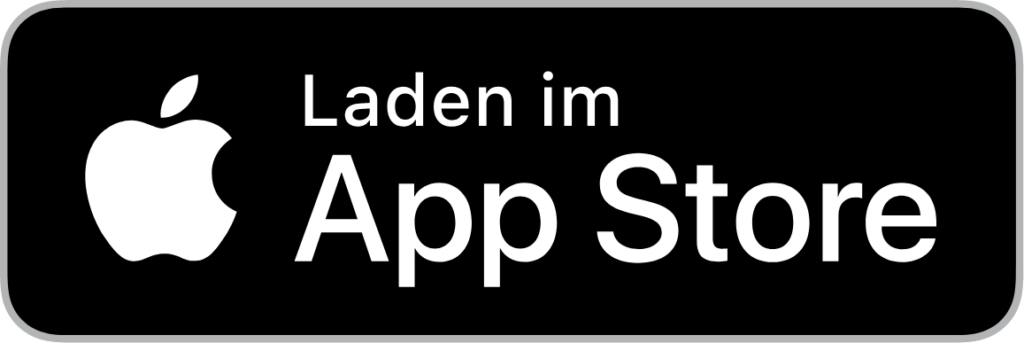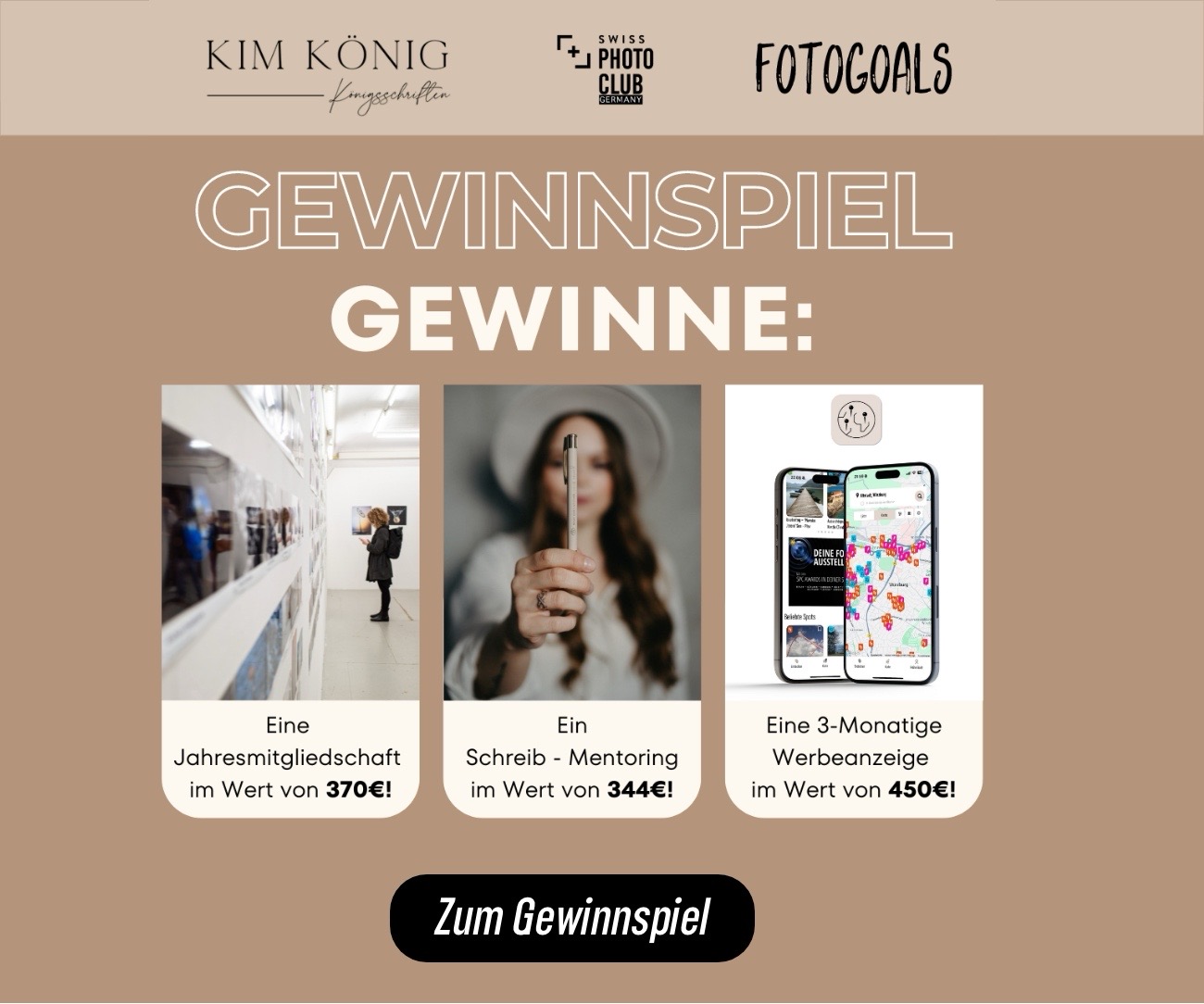Malaysia
Immerse yourself in the fascinating world of Malaysian landscapes, architecture and culture, which offer a rich diversity and unparalleled beauty. From the modern skyscrapers of Kuala Lumpur to the pristine rainforests and beaches of Borneo, Malaysia offers a wealth of photo opportunities that will delight any photography enthusiast.
A fascinating mix of cultures, traditions and innovations
Photo spots in Malaysia

Welcome to the land of diversity – Malaysia, where photo spots invite you on a journey through the many facets of culture, history and breathtaking landscapes. From the modern skyscrapers of Kuala Lumpur to the vibrant city life of George Town and the pristine rainforests and beaches of Borneo, Malaysia’s nature and architecture reflect a fascinating diversity that will inspire any photographer.
Explore the historic colonial buildings in Malacca, the charming villages in the Cameron Highlands and the impressive diving spots and coral reefs on the Perhentian Islands. Malaysia is a country full of contrasts, characterized by its rich history and cultural diversity, which enchants its visitors with every photo spot. From the small hidden gems to the vibrant cities, Malaysia offers a seemingly endless array of photo opportunities waiting to be discovered. Get ready to be captured by the beauty of this country and start your photo journey through Malaysia.
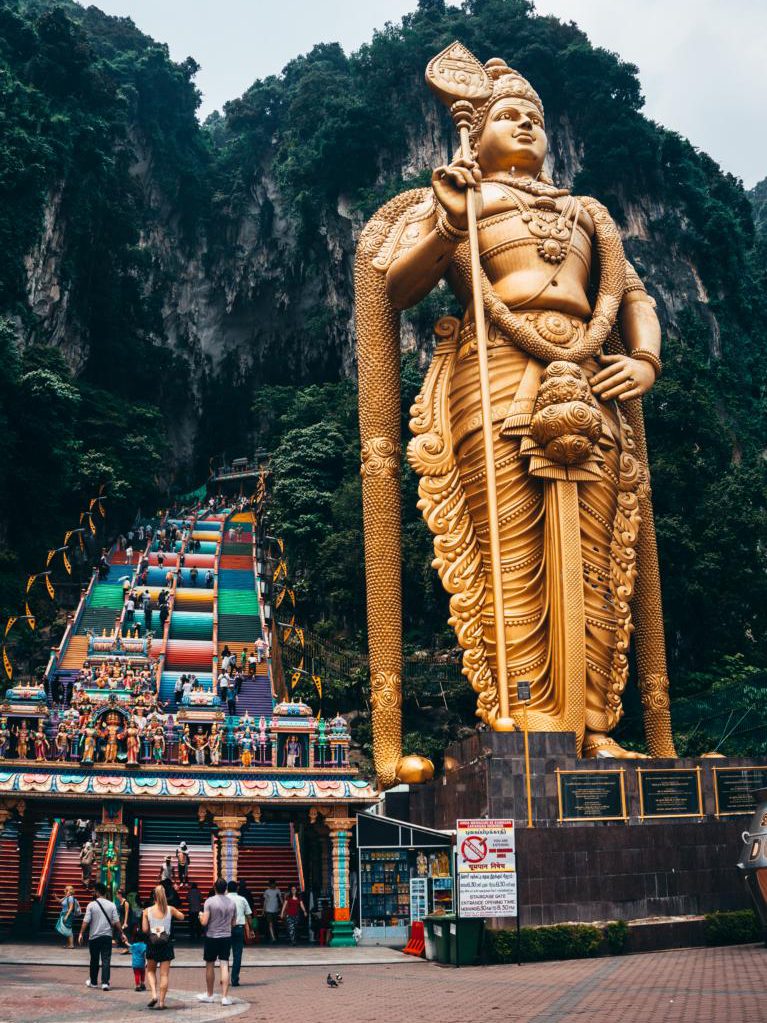
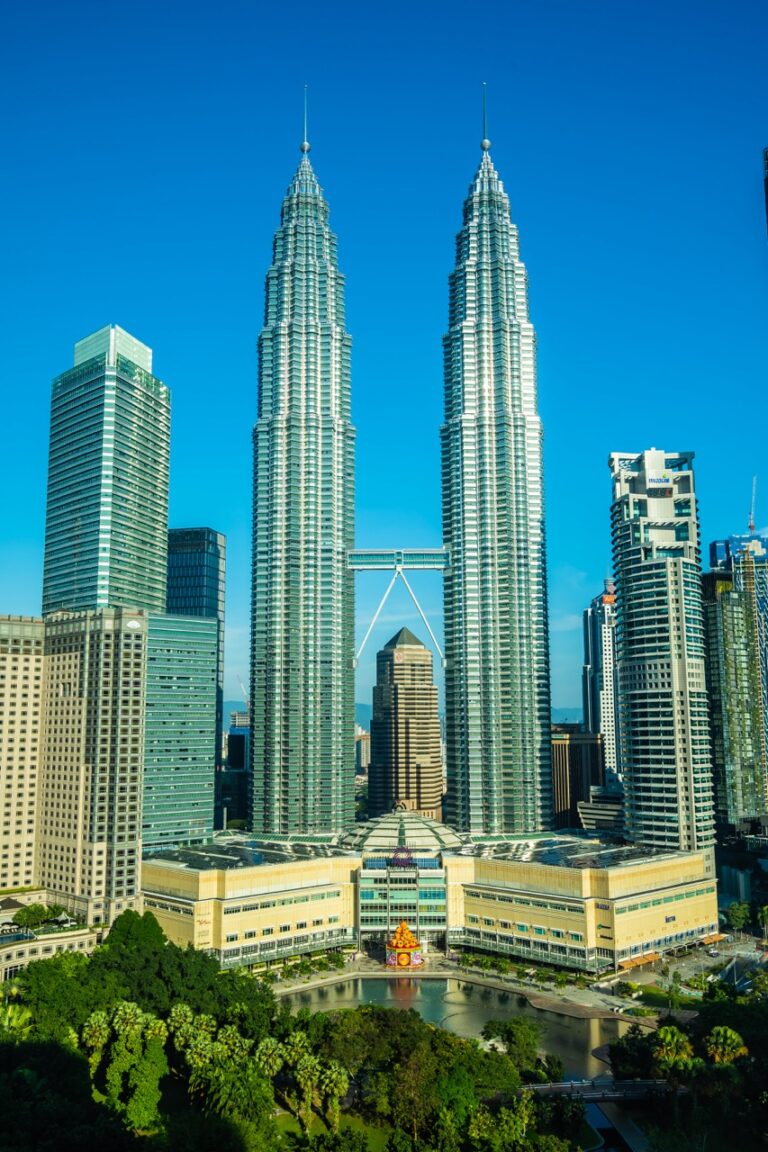
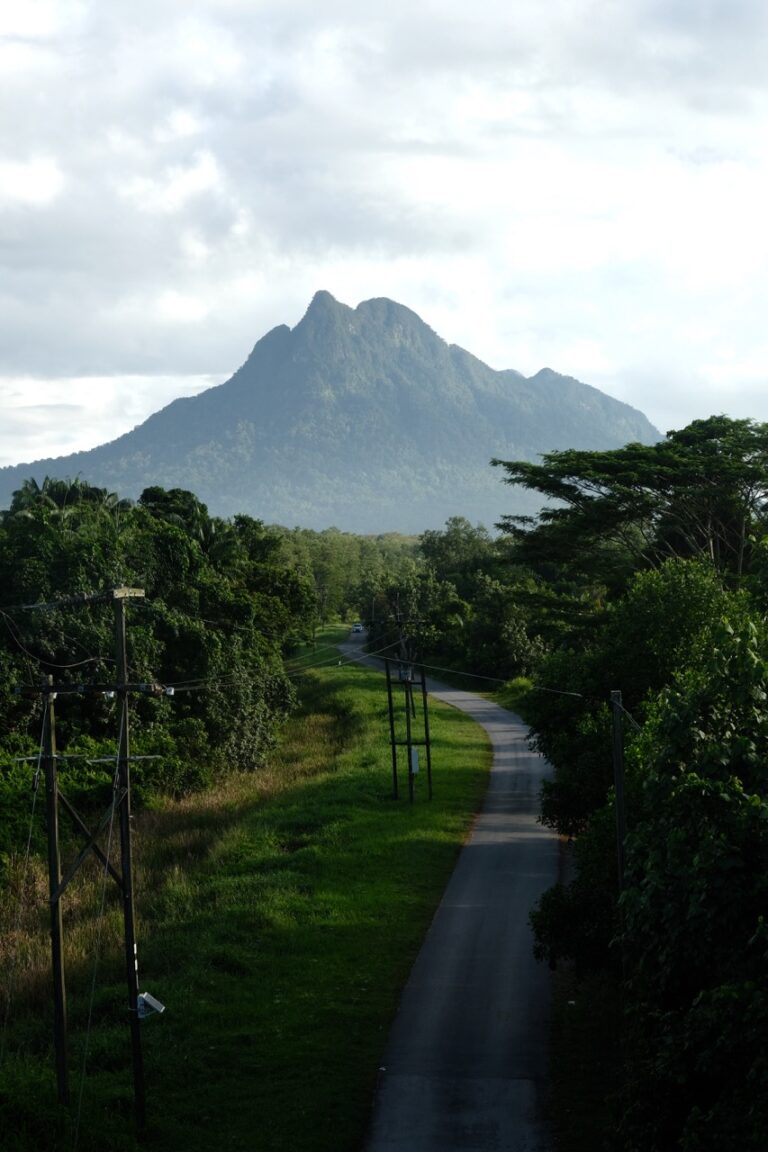
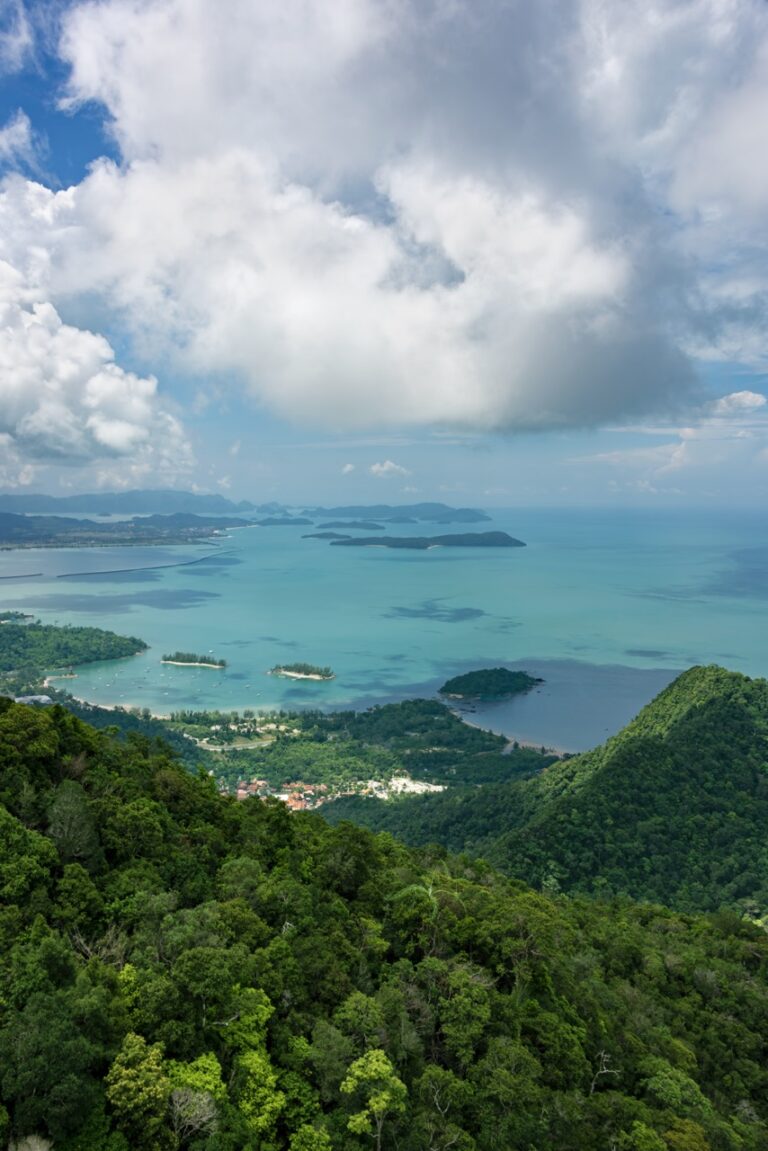
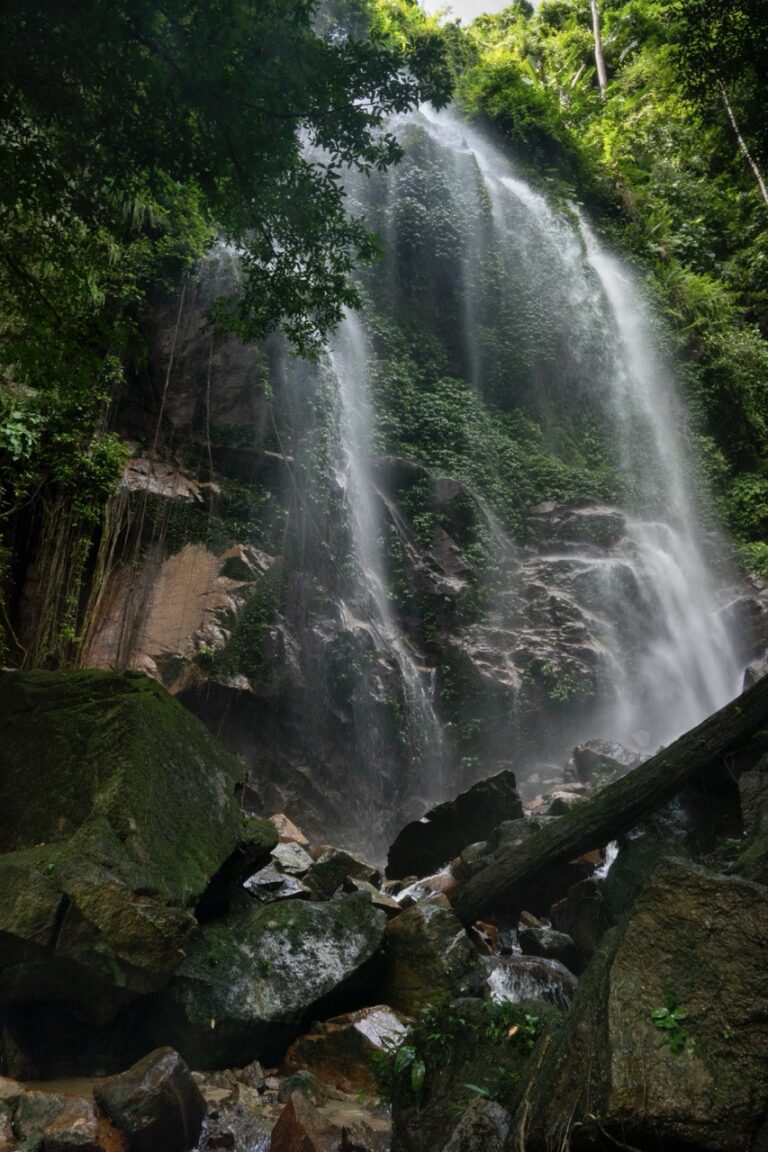
Good to know

Here you will find important information for your visit to Malaysia or for your trip through this fascinating country in Southeast Asia. We’ll give you everything you need to get the most out of your stay in Malaysia. Let’s go on a journey of discovery together and experience the best photo spots with Fotogoals.
Regions
Malaysia is divided into 13 federal states and three federal territories: from Kuala Lumpur, Penang and Sabah to Sarawak and Johor. These regions each offer their own unique sights and cultural highlights. From the modern skyscrapers of Kuala Lumpur to the pristine rainforests of Borneo, Malaysia offers a rich diversity to explore.
Currency
The official currency in Malaysia is the Malaysian Ringgit (MYR), which is accepted as a means of payment throughout the country. The country’s largest banks include Maybank, CIMB Bank, Public Bank and RHB Bank. ATMs can be found in banks as well as in many public places such as shopping centers, train stations and airports, making access to cash convenient and easy.
Mobile radio
Malaysia has the country code +60 and the leading mobile operators are Maxis, Celcom and Digi. Other providers use one of the networks of the major providers. The mobile network is generally well developed and offers extensive network coverage, even in rural areas. In general, 4G LTE is readily available. 5G is being developed in urban areas.
Grocery
In Malaysia, most supermarkets and discount stores are open from Monday to Sunday from around 7 or 8 am until 10 or midnight. Some are also open around the clock. Some of the most popular retailers include Lotus, Giant, Mydin, 7-Eleven and AEON. They offer a wide selection of food and other products at affordable prices.
Transportation
There are a variety of transportation options in Malaysia. The Keretapi Tanah Melayu (KTM) offers an extensive train network for national travel. Cities have public transportation such as monorails and buses. Numerous bus providers such as Aeroline, Melor Interline, Maraliner, Mayang Sari Express, KKL Express or Sani Express offer inexpensive long-distance bus connections. There are also various ferries for transportation to the island, such as the Langkawi Ferry Line. There are also ride-sharing services such as Grab, traditional cabs and car rental companies for flexible transportation options.
Restaurant
Malaysia has a diverse restaurant scene that offers something for every taste and budget. In addition to traditional restaurants serving Malaysian cuisine, you will also find a variety of international chains and street stalls offering a wide range of dishes, from nasi lemak to sweet desserts. Prices for main meals average between 20 and 50 MYR. It is customary to tip around 10% if no service charge is included.

Malaysia - FAQ: Travel
Here you will find the answers to the most frequently asked questions about traveling to Malaysia
If you want to visit Malaysia, the best time to visit depends on your personal preferences and the activities you are planning. The dry season (November to February) offers pleasant weather and is ideal for beach visits and outdoor activities. The rainy season (March to October) brings frequent but short rain showers, which do not affect most activities. When planning your trip, consider your personal preferences and interests to find the best time to visit Malaysia.
If you wish to enter Malaysia, the need for a visa depends on your nationality, the purpose of your stay and the intended duration. Nationals of many countries do not require a visa for short-term stays of up to 90 days for tourism or business purposes. However, a visa may be required for longer stays or other purposes. It is important to check the current entry requirements and apply for a visa in good time if necessary.
If you are planning a vacation trip to Malaysia, the choice of airport depends on your destination and personal preferences. Most international flights land at Kuala Lumpur International Airport (KUL), the largest and busiest airport in the country. Other major airports are Penang (PEN), Kota Kinabalu (BKI) and Kuching (KCH). These airports offer a wide range of connections and are well connected to the public transportation network. If you have a specific destination in Malaysia in mind, it may make sense to choose the nearest regional airport. Find out about the various options in advance and choose the airport that best suits your travel plans.
If you are traveling to Malaysia, no special vaccinations are usually required. However, it is recommended that you keep your standard vaccinations up to date according to your home country's vaccination calendar. If you are traveling from countries with yellow fever infection areas, you may need to provide proof of a yellow fever vaccination. It is advisable to find out about current health and entry regulations before you travel and to seek medical advice if necessary.
Yes, many people in Malaysia speak English as it is one of the official languages of the country. English is widely spoken and is often learned as a first language at school. In urban areas, tourist centers and among the younger generation, English is particularly common. In hotels, restaurants, stores and tourist attractions, it is common for staff to speak English to communicate with international visitors. If you don't speak Malay, you can usually communicate in English to find your way around and get help.
Malaysia - FAQ: Daily life
Here you will find the answers to the most frequently asked questions about daily life in Malaysia
In Malaysia, the voltage is 240 volts and the frequency is 50 hertz. The sockets correspond to the British type G. If you come from a country that uses other plug types, you may need an adapter to connect your electronic devices. These adapters are available in most electronics stores, airports and hotels. It is recommended that you check whether you need an adapter before your trip to ensure that your electronic devices can be used without any problems.


Yes, tap water in Malaysia is generally of high quality and is safe to drink, especially in urban areas. However, it is often recommended to buy bottled water as the taste of tap water can vary. Bottled water is available in most hotels and restaurants. Drinking tap water is environmentally friendly and saves money during your stay in Malaysia.
Payment by card, especially by credit card, is widespread in Malaysia. In larger stores, restaurants and bars in cities or tourist regions, payment by credit card is generally accepted. However, some smaller stores or rural areas may only accept cash. It is therefore advisable to find out in advance whether payment with your credit card is possible. Visa and Mastercard are accepted almost everywhere, while American Express can sometimes cause problems. All cards are usually accepted in supermarkets, as are Apple Pay and Google Pay. It is always a good idea to have both cash and a credit card with you to be prepared for all eventualities.
In Malaysia, you can buy alcohol in specialty liquor stores and in some supermarkets. You will find a standard selection of alcoholic drinks in larger cities and tourist areas, while a larger selection is usually only available in specialty liquor stores. The sale of alcohol is generally not limited in time, but it is advisable to find out about local regulations. The minimum age for the purchase of alcohol is 18 years.
In Malaysia, you can buy cigarettes and tobacco in supermarkets, kiosks, petrol stations and special tobacco stores. These products are usually kept behind the counter and must be requested from the staff. It is important to note that the sale of tobacco products is regulated and the minimum age for buying tobacco is 18. A pack of cigarettes costs around 4-5 euros on average.
In Malaysia, you can buy drugstore and hygiene products in supermarkets such as Lotus and Giant as well as in specialized drugstores such as Watsons and Guardian. These stores offer a wide range of products, including body care, cosmetics, household cleaners and baby care. Drugstore items are also available in pharmacies, which are widespread in most towns and communities.
Left-hand traffic prevails in Malaysia. The speed limits vary depending on the type of road: in urban areas the limit is usually 50-60 km/h, on rural roads 80-90 km/h and on highways 110 km/h. Seat belts must be worn by all vehicle occupants. The blood alcohol limit is 0.08%. The use of cell phones without hands-free equipment while driving is prohibited. It is important to obey traffic signs and traffic lights and to give priority to pedestrians at crosswalks.
When visiting Malaysia, there are a few important things to consider to ensure a smooth and enjoyable stay:
- Dress: Malaysia has a relaxed dress code, but it is advisable to dress appropriately in urban areas and for formal occasions. Conservative clothing should be worn in religious sites.
- Traffic: Left-hand traffic prevails in Malaysia. It is important to follow the traffic rules and drive carefully. Pedestrians should be particularly careful when crossing the road.
- Smoking: Smoking is prohibited in public buildings, restaurants, bars and many public places. There are designated smoking areas which should be used.
- Alcohol: The consumption of alcohol is permitted in Malaysia from the age of 18. However, it is forbidden to drink alcohol in public, except in designated areas such as licensed bars and restaurants.
- Emergency number: The emergency number in Malaysia is 999. This number can be used for the police, fire department and ambulance.
- Tipping: Tipping is not obligatory in Malaysia, but is appreciated in restaurants and for good service. Usually about 10% of the invoice amount is given.
Malaysia - FAQ: Photo
Here you will find the answers to the most frequently asked questions about photography in Malaysia
There are some important rules and regulations regarding photography in Malaysia:
- Respect privacy: Do not photograph people without their express permission, especially in private or sensitive situations.
- Military and government buildings: Photography of military facilities and government buildings is often restricted or prohibited.
- Religious sites: Special care should be taken when taking photographs in mosques, temples and other religious sites. Find out in advance whether photography is permitted.
- Commercial photography: Permission is required for commercial photography. Find out about the necessary permits in advance.


